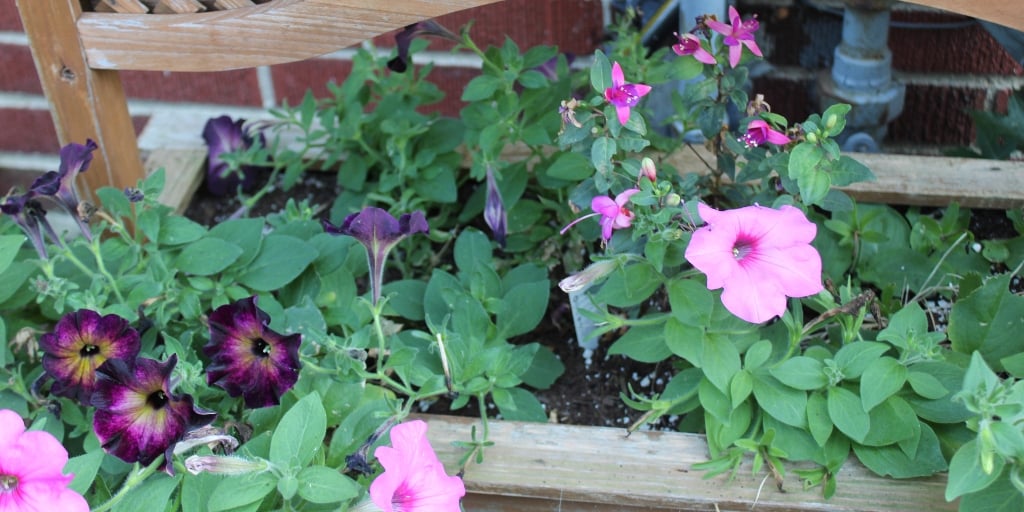
Rosemary Bogdan uses a gardening metaphor to discuss how we can nurture our growth in virtue.
There are flowers. There are weeds. Such is the state of my garden that suggests to me the state of a soul. Gardens are lovely. Flowers are beautiful, but they don’t become that way all on their own.
The flowers remind me of the virtues. The Catechism teaches us about human virtues.
The moral virtues are acquired by human efforts. They are the fruit and seed of morally good acts. (CCC 1804)
I love all the botanical references in both the Catechism and Scripture. Flowers in a garden are acquired by human effort. First, you must plant them. Then, unless nature provides, especially in the beginning, they need water. They also need sunshine, good soil, and sometimes even a little fertilizer. Then God provides with His life-force.
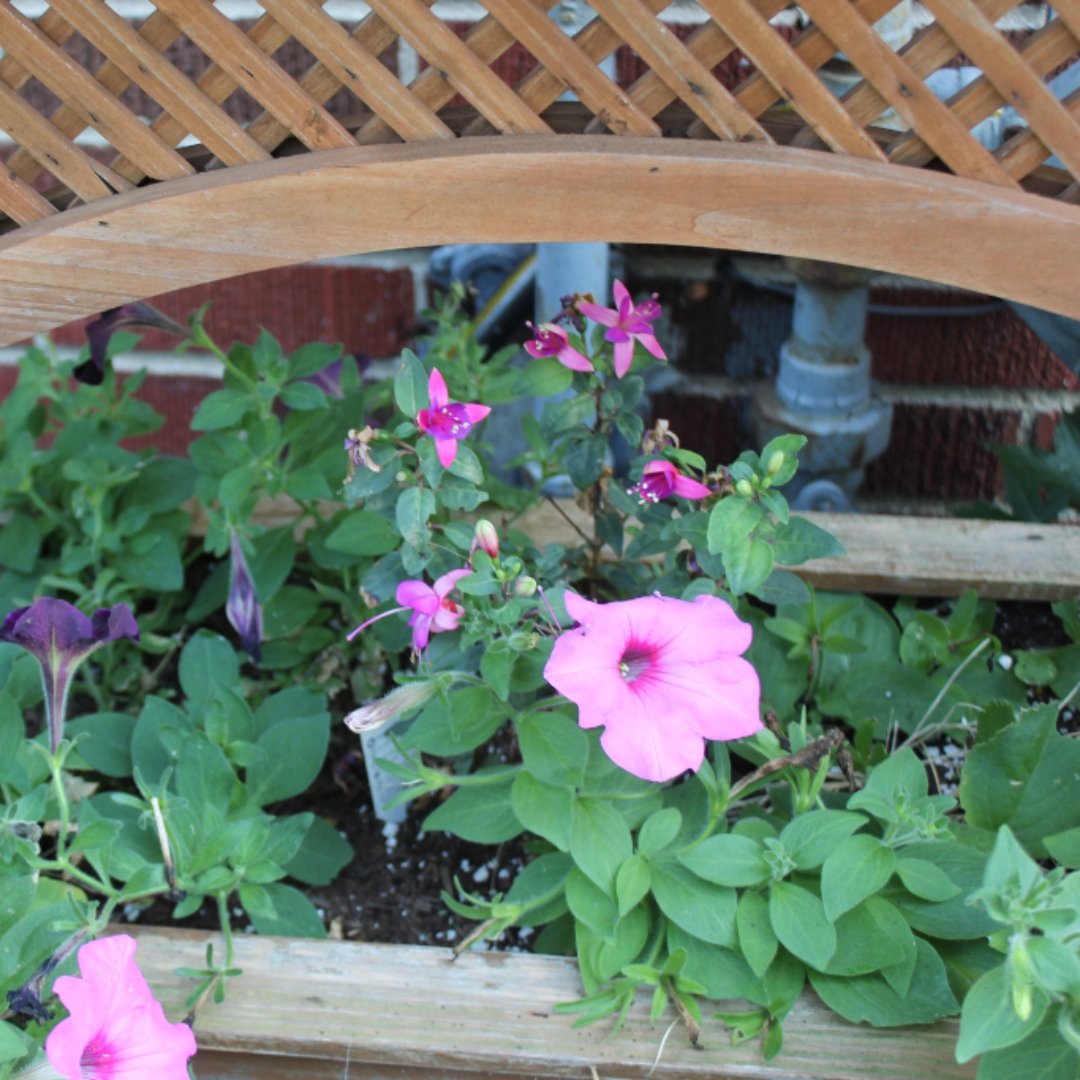
The water that plants need is like the grace received in the sacraments. You might grow in virtue without it but virtues will grow a lot faster with frequent reception of the sacraments. We need the living water! Sunshine I compare to times of silence, time listening to the Lord, soaking in all of His love and guidance.
The soil provides nourishment for flowers. In the spiritual life this nourishment could be time spent in prayer, the reading of Scripture and the Catechism, and good fellowship with others.
Fertilizer for the flowers reminds me of our efforts to grow in the spiritual life.
The moral virtues grow through education, deliberate acts and perseverance in struggle. Divine grace purifies and elevates them. (CCC1839)
We can foster our growth with spiritual reading, retreats, prayer groups and days of renewal.
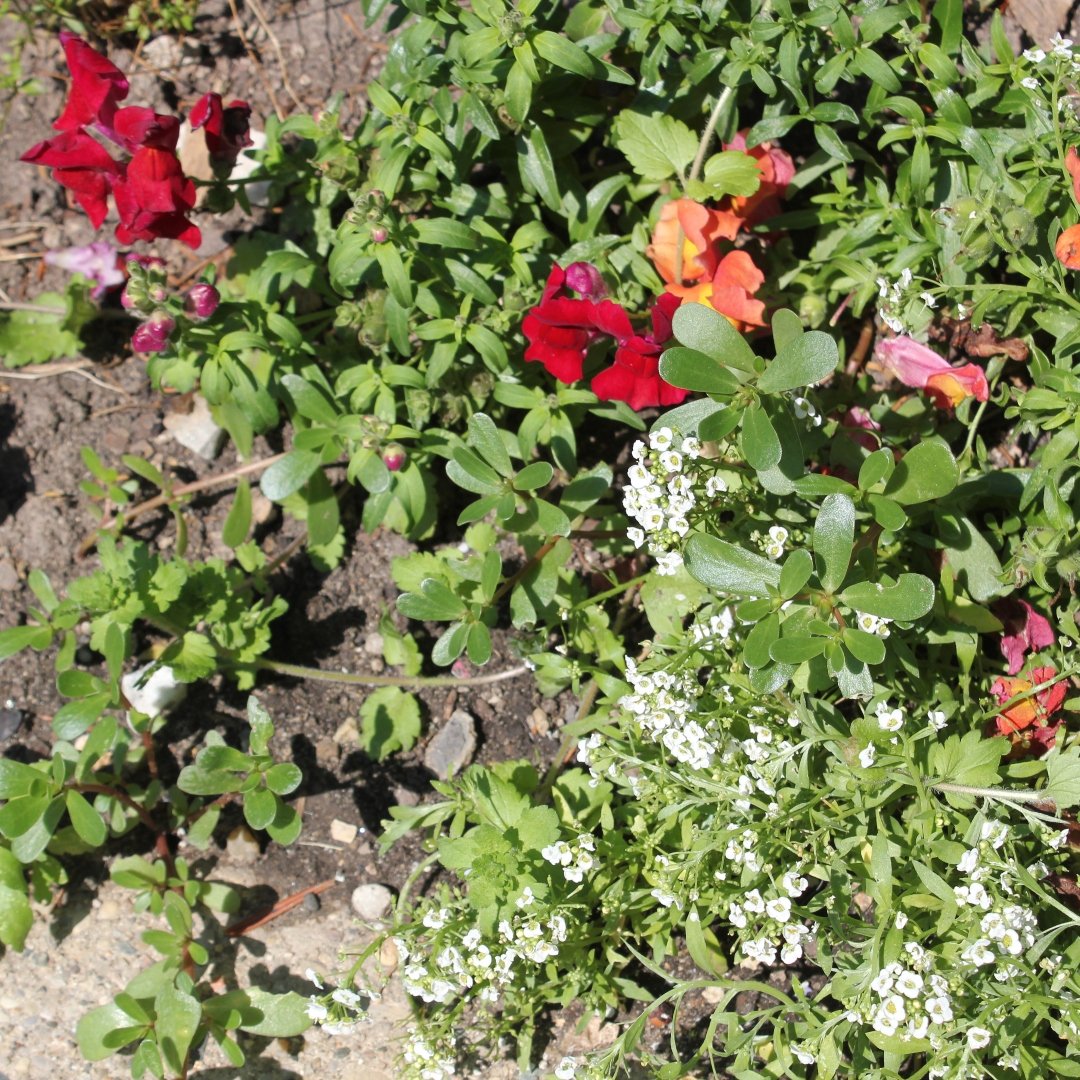
But as the Catechism tells us, growing in human virtues requires human effort. There are the weeds! Weeds grow everywhere. I see these as comparable to sin and perhaps even to temptation. They will overgrow the flowers. If not pulled out they will crowd and even kill the flowers. They steal nutrition, water, and even life. So does temptation if we do not avoid it. And sin will steal those precious virtues if it is not pulled out of the soil.
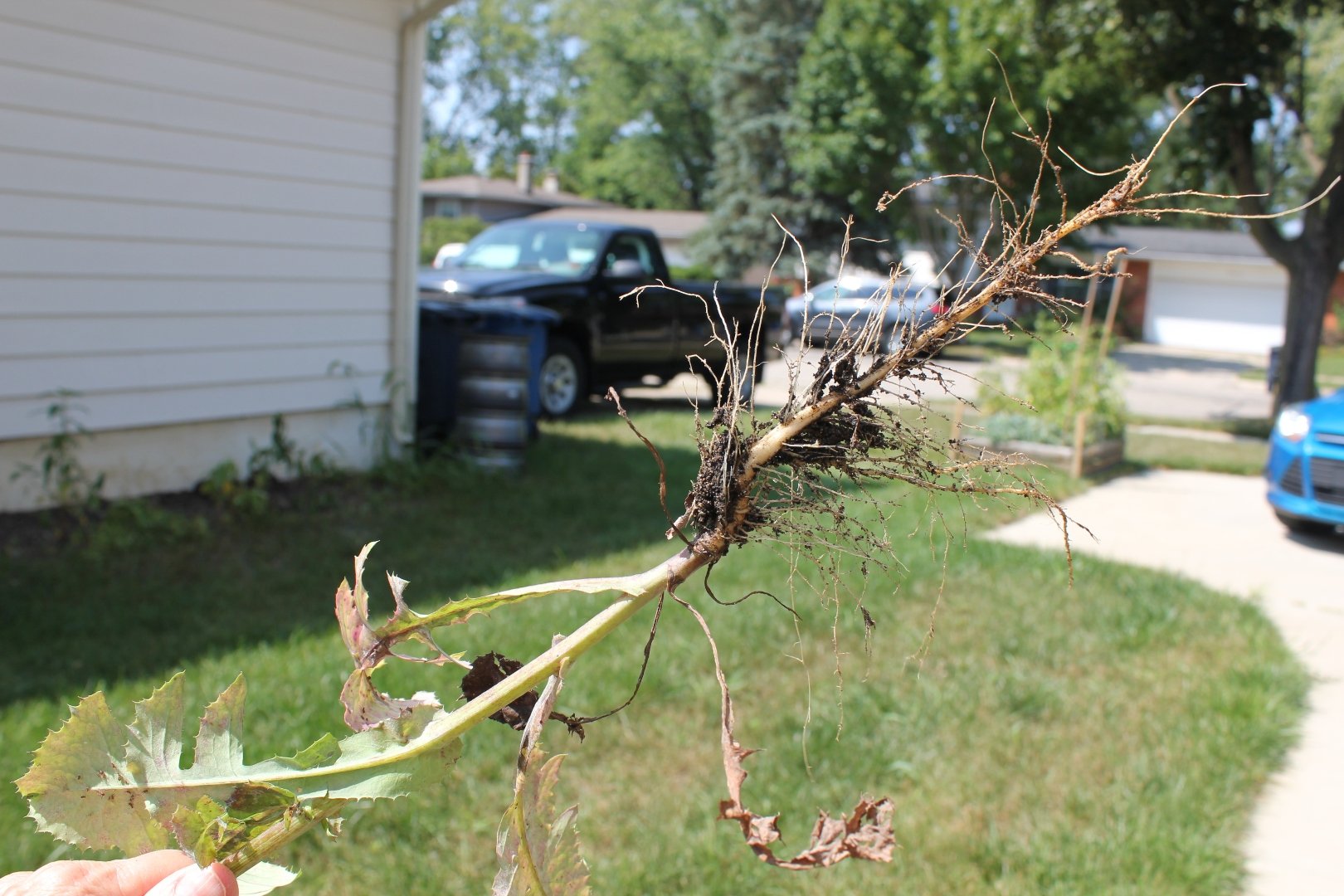
As a gardener, I know it’s worth the effort to try to get the entire weed, including the roots. If the roots are broken off they will just grow back and I’ll have to pull them again. Is it not the same with sin? I can confess a sin, but if it’s a habitual sin it’s helpful to me to think about where it’s coming from.
Are we impatient because we think we deserve better? This could be pride. Are we short tempered because we’re fearful and don’t trust God? Are we rude to others, because we want to vent some anger that’s really coming from somewhere else? Are we self-indulgent because we are seeking comfort from material things rather than from the Lord? Maybe focusing on the root could help.
The root of all sin lies in man’s heart. (CCC1873)
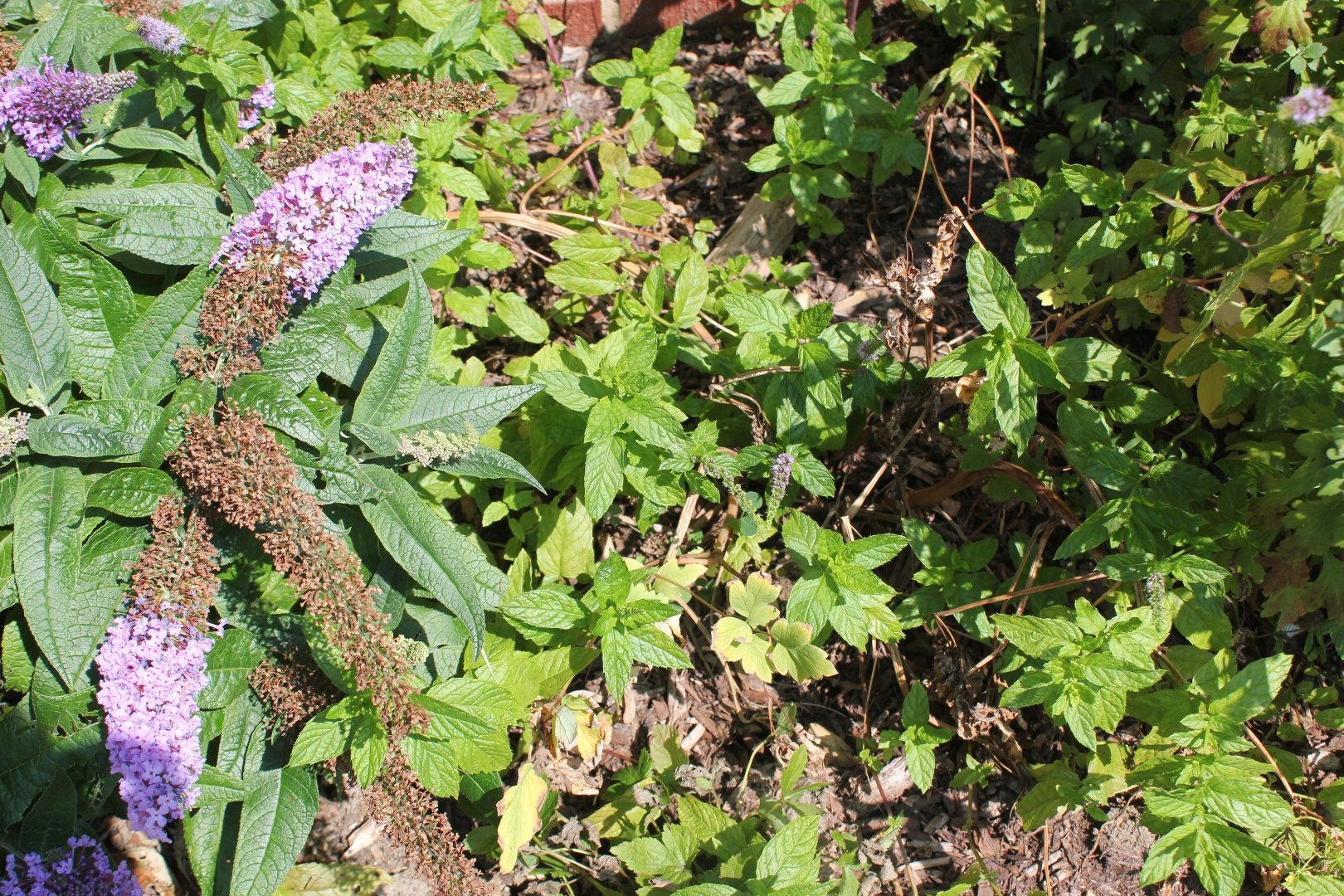
The above photo is a dwarf butterfly bush with encroaching mint plants. (These are perhaps not the best examples since they are both kind of like weeds. But I planted the butterfly bush intentionally so I feel it has a right there. The mint? Well, at one time I did plant it intentionally and I’ve been yanking it out ever since. If you want to have mint I suggest putting it in a container.) But back to our topic.
The weeds of our soul’s garden require ongoing attention. They do not stop trying to overcome our virtues. The world, the flesh and the devil do not let up.
Sin creates a proclivity to sin; it engenders vice by repetition of the same acts. This results in perverse inclinations which cloud conscience and corrupt judgment of good and evil. Thus sin tends to reproduce itself. (CCC1865)
Just as do the weeds! If they are not taken care of the flowers will be overrun. It happens.
The repetition of sins — even venial ones — engenders vices, among which are the capital sins. (CCC 1876)
In other words, sin begets sin. We have to pull them out if we want the flowers of virtue to bloom and grow.
Venial sin weakens charity … Deliberate and unrepented venial sin disposes us little by little to commit mortal sin. (CCC1863)
Here is what happened to my peony bush when I neglected to pull the weeds as they surrounded it. It’s in a part of my yard that I don’t look at as closely as I do the front. Are there areas of my life that need more attention?
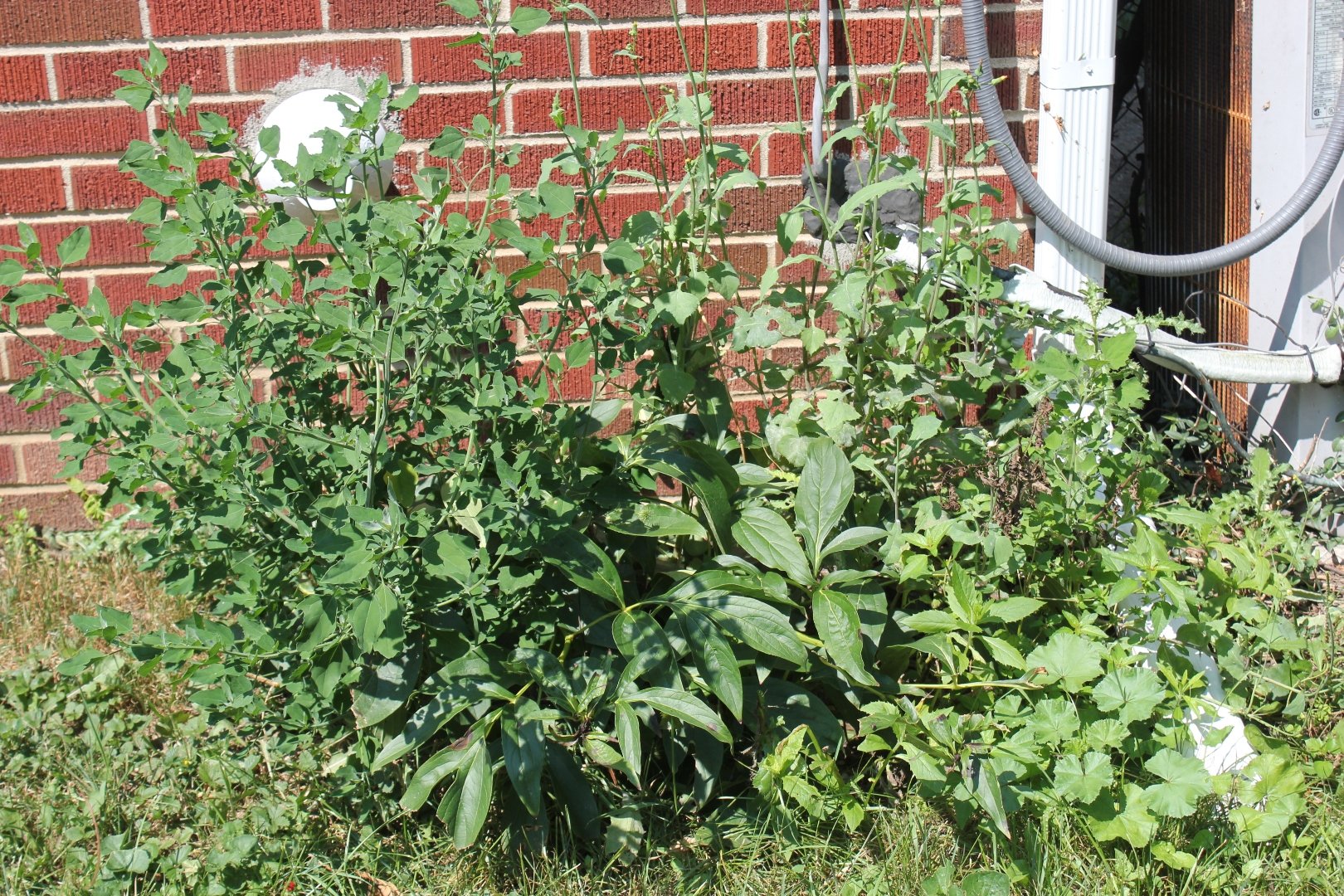
Overcoming venial sin is no small thing, just as is the gardener’s task of tending to the weeds. But gardening is most certainly not as important as the spiritual life. Just a metaphor to think about.
This lovely dwarf hibiscus I have transplanted three times. Finally it’s getting all the sun it needs. Another article could perhaps be written about the need to transplant ourselves sometimes.
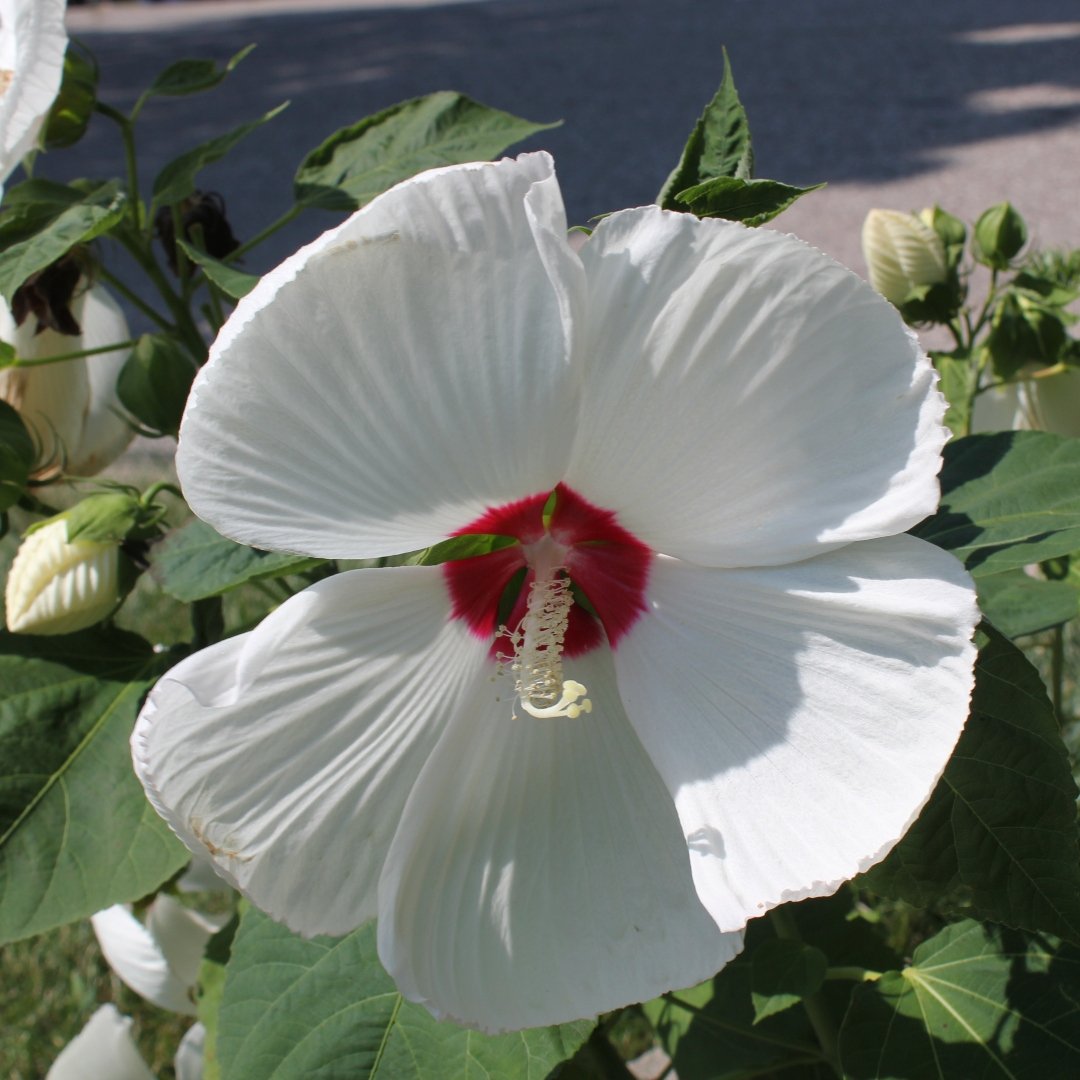
As the summer progresses and it’s so easy to neglect our gardens as things get busy, may we remember the important things: Rooting out sin, growing in virtue, and discerning and following the will of God. Have a blessed end of summer.
Are there habitual sins in my life that need rooting out so virtues can flourish?
Copyright 2021 Rosemary Bogdan
Images copyright 2021 Rosemary Bogdan
About the Author
Rosemary Bogdan
Rosemary Bogdan is a wife, mother of six adult children, and a grandmother. She homeschooled her children when they were young and currently substitute teaches at her favorite Catholic school. When not spending time with her family, Rosemary writes at A Catholic Mother's Thoughts and Catholic365.com.


.png?width=1806&height=731&name=CatholicMom_hcfm_logo1_pos_871c_2728c%20(002).png)
Comments